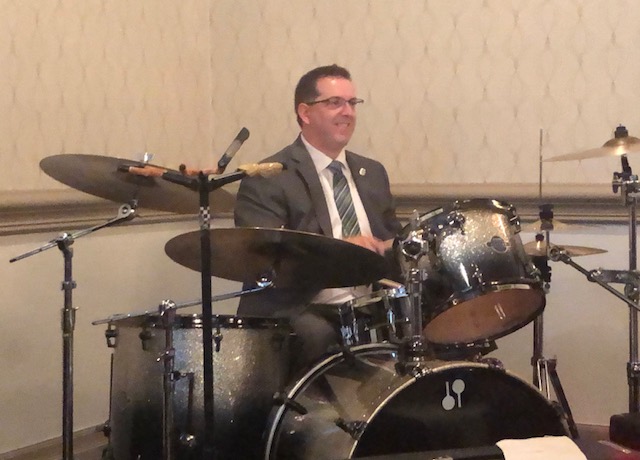It’s been quite the decade for the city of Guelph and its mayor, Cam Guthrie.

He started his political career as a councillor in 2010 before getting the top job at city hall four years later. Guthrie was then easily re-elected in 2018.
During this time, Guelph has become one of the fastest-growing cities in Canada.
Guthrie sat down for an interview with Global News to look back on the past 10 years and to look ahead at what’s to come in the next decade.
Global News: What were you doing in 2010?
Cam Guthrie: I was running and becoming a city councillor at that time. I was a part-time city councillor, which is kind of a lie because it’s really a full-time job, but I was still working in the insurance industry.
GN: Thinking back to that year, how were you hoping things might shape up over the decade?
CG: A lot of it was around the finances of the city and business friendliness. Those were kind of the two major issues that were really percolating across the city and things I really wanted to run on.
GN: Were you right or wrong? If you were wrong, how so?
- Trudeau says ‘good luck’ to Saskatchewan premier in carbon price spat
- Canadians more likely to eat food past best-before date. What are the risks?
- Hundreds mourn 16-year-old Halifax homicide victim: ‘The youth are feeling it’
- On the ‘frontline’: Toronto-area residents hiring security firms to fight auto theft
On the business friendliness part, we’ve done very very well. We’ve really turned the tide on a dark cloud that was sort of over the city at that time about being difficult to deal with so now we have a “get to yes” attitude.
We’ve accomplished a lot of growth in our economy locally and also we’ve had a lot of foreign direct investment opportunities as well. So it’s not just local to Ontario but also it’s outside of Ontario and outside of Canada.
GN: What is the single biggest change (or name a few) that has happened in Guelph over the past 10 years that has been a game-changer?
CG: I think the biggest change in Guelph is really the friction over the last 10 years of growth. That’s the easiest way to say it.

GN: What has been your biggest win?
CG: We started something called the civic accelerator, which is a way for entrepreneurs and startup businesses to embed themselves in the city to help the city find solutions to their problems.
Coupled with that is probably the win we received of the $10 million from the federal government over the circular food economy. Guelph is really known for our agri-food business and it really puts us on the map already with the University of Guelph. But then winning the $10 million for the Smart Cities Challenge to help with the circular food economy, and again it’s not just Ontario or Canada but it’s the world looking in on Guelph on how to solve these complex issues.
Me personally, it’s relationships. I think that was another big issue about why I ran. I think there was a lot of friction with relationships with other agencies that had to deal with the city. With other levels of government, there was a lot of problems and I feel you can get through life a lot better if you have some really good, solid, genuine relationships.
GN: What has been your biggest disappointment or miss? What did you learn from it?
CG: There are some small things that kind of bother me. They may be minor in the grand scheme of things but, like, introducing a charge for yard waste at the waste facility. I don’t think we went about that the right way and it did get fixed. But I didn’t like how that went down.
The big one I guess for the city was getting into the District Energy field a few years ago and then when I became mayor, I was able to figure that out and make it more public and known that it wasn’t working very well as the city as an operator.
District Energy is actually a good thing but that wasted $17-20 million and I was able to stop that. So that’s maybe a big win. I’m glad I was there to do that but it was a bad thing for the city to get into originally.

GN: What’s your biggest hope for Guelph for 2020-2030?
CG: So the two big ones on the radar for everybody is the Baker Street development downtown and then also the south end rec centre.
Two-way, all-day GO train service has been on the radar forever, so has been getting lights off the Hanlon Expressway, and so has the Highway 7 expansion. But definitely, the game-changer will be all-day, two-way GO for sure.
GN: What is the biggest challenge Guelph faces over the next decade?
CG: Everything comes back to growth and the province wants us to have an extra 60,000 people here in the next 25 or so years.
The biggest challenge with that is operating costs and I get frustrated a little bit with the amount of operating cost increases. It’s my personal goal to really attack that issue at the city starting right in the new year. We’ve been doing it as a city and as a council over several years but we need a renewed focus on tackling and challenging the operating costs as we grow.





Comments